Stewart Granger—
When Stewart Granger was a boy, he was as bashful with girls as a cowboy hero in the heroine’s presence. He never wears a hat—or garters. Incompetence and inefficiency drive him crazy: “People who don’t know their jobs should be doing something else.” First couple of days on a new picture, he always has a fine case of camera jitters.
Marital vacations are a great idea, he thinks—“but not the planned kind. Those that happen in the natural course of events are a good thing.” (He and Jean Simmons had an unplanned marital vacation recently, when M-G-M sent him to England to make “Beau Brummell,” and RKO refused to let Jean go along.)
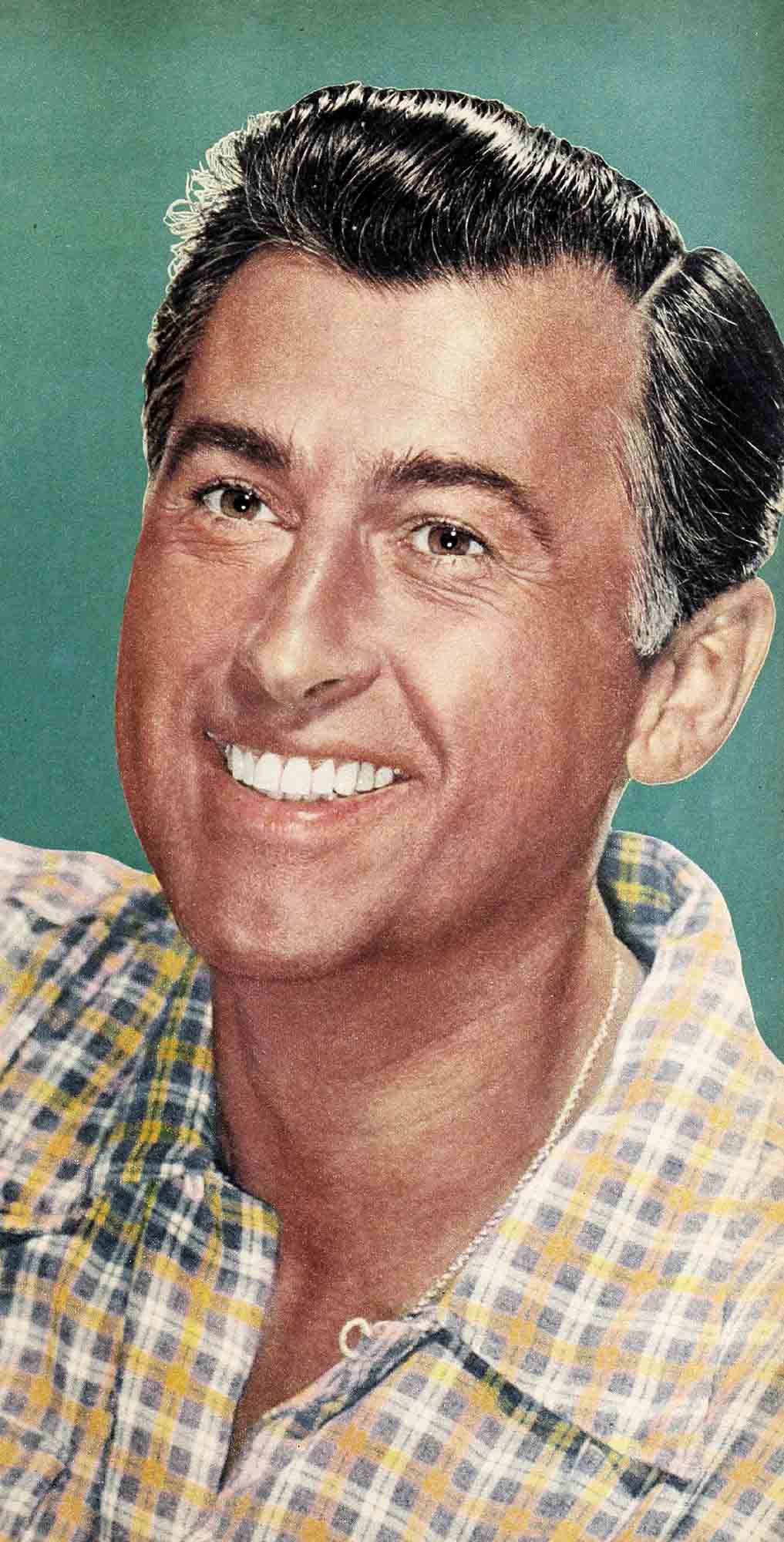
He can’t stand avocados, garlic, champagne, hamburgers or air travel: “My head aches and my ears pop.” When he’s working, he usually breakfasts on grapefruit and tea, has a light lunch, smokes about fifty cigarettes a day. When he isn’t working, he puts away a sturdy bowl of porridge each morning. He gets terribly seasick, though he was brought up beside the sea. “I used to fish on one side of the boat and get sick on the other.”
He is punctual, but not fussy about details, and definitely not the neat type around the house: “My room always looks as if a tornado had just ripped through it.” He’s inclined to obey his impulses. He doesn’t believe in fortune tellers—“but if they tell me anything, it stays with me in spite of myself.” He has a passion for driving fast cars, but he’d as soon tinker with an engine as try to dismantle an atom bomb—and he’s equally vague about the way both contraptions are put together: “If I get into the car and press the starter and it actually works, I’m amazed and delighted.”

He never whistles. He has no singing voice. But if the Grangers’ car whizzed past you on the road, you’d be likely to hear them close-harmonizing “On Top of Old Smoky.” Granger occasionally wears glasses for reading. He’s not very comfortable or happy when he has to wear white tie and tails. He changes his brand of hair tonic every week. He needs it? His hair is thick and brown, graying at the temples.
He’s a rebel at heart, ready to put up a light if anybody threatens to fence him in. He’s a worrier. He’s a pretty sorry correspondent, admits that he usually puts off answering letters: “I keep hoping that if I don t answer them they’ll somehow answer themselves. And when it comes to writing to my children, I get awfully depressed to realize suddenly that they’re so far away.”
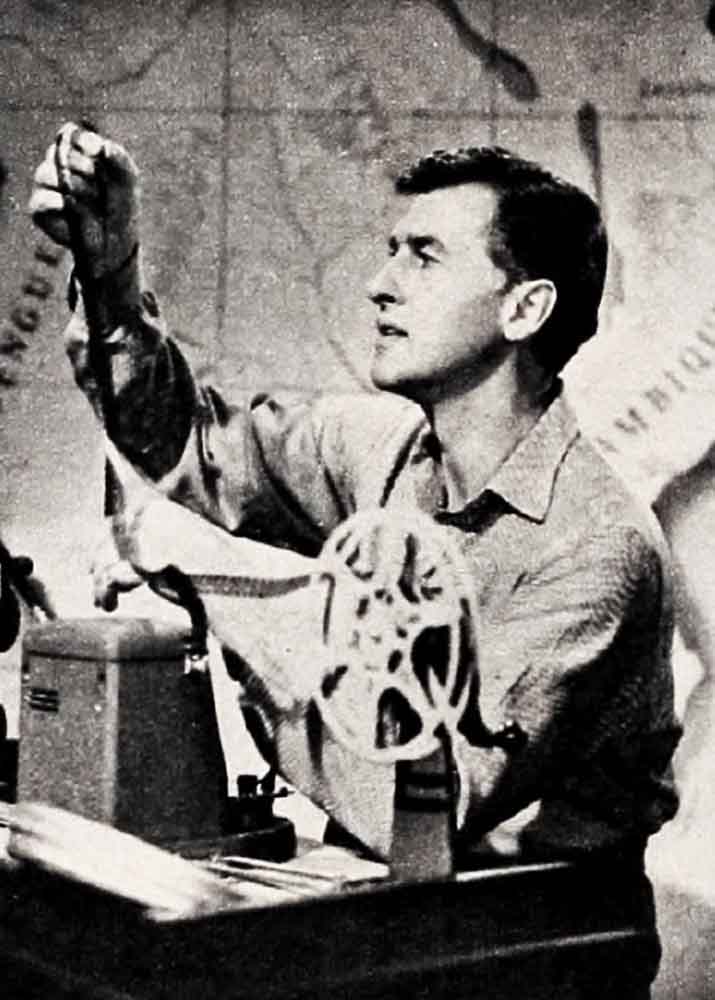

His hair’s thick, but every week he tries new hair tonics
He’s a first-rate horseman and a crack shot with a rifle. He dances a mean rhumba and tango. He wishes he could play the piano. He plays and enjoys all kinds of card games, but is “not ’specially lucky” at gambling: “Lord knows, I’ve lost enough!” He’s very fond of Gorgonzola, hot dogs, Camembert and a British dish called “bubble-and-squeak,” made out of cold potatoes, cabbage and bacon fat. (Sounds revolting—until you’ve heard Granger give the recipe, with positively poetic enthusiasm.) He’s a good cook.


On screen, “Beau Brummell.” At home, soda jerk!
He has a hair-trigger temper. When a career problem comes up, he makes his own decision, but he’ll take advice on financial affairs, because he doesn’t think he’s much of a businessman. He despises double talk and people who fawn on him. He never forgets a name, but his memory for faces is “appalling.” If he felt like taking a stroll and he could be miraculously transported to any place in the world, he’d choose either Bond Street in London or the Champs Elysees in Paris. He thinks the Houses of Parliament—“as seen from the far bank of the Thames”—are the most beautiful of buildings.
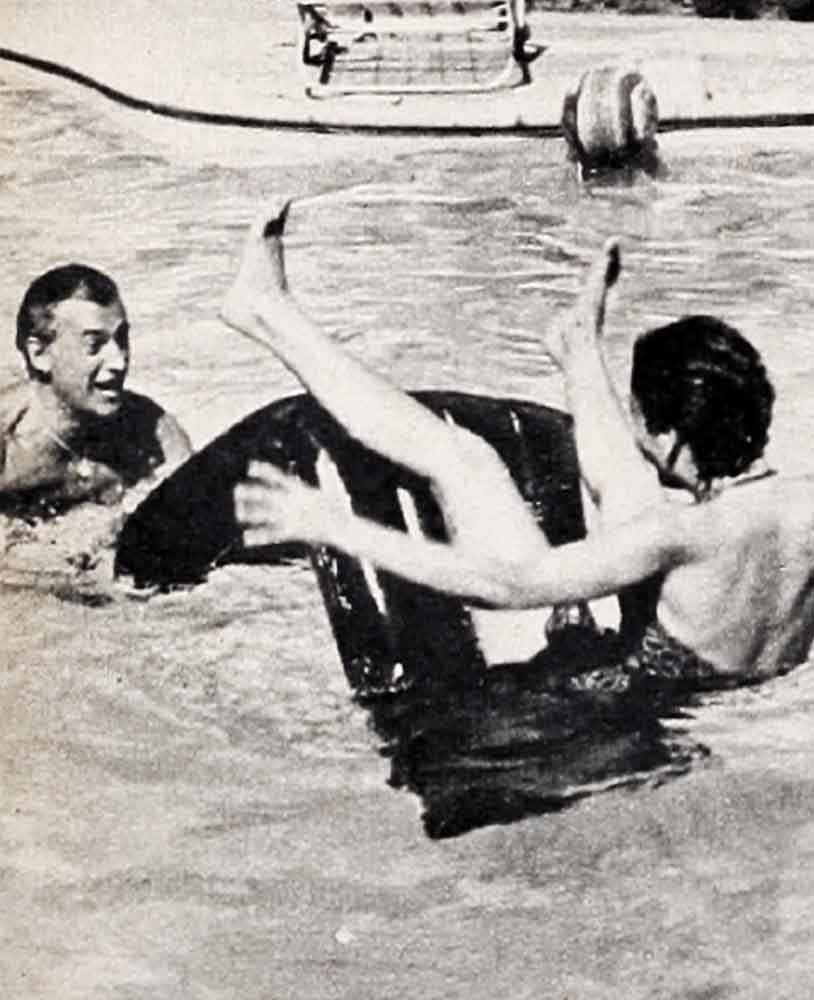
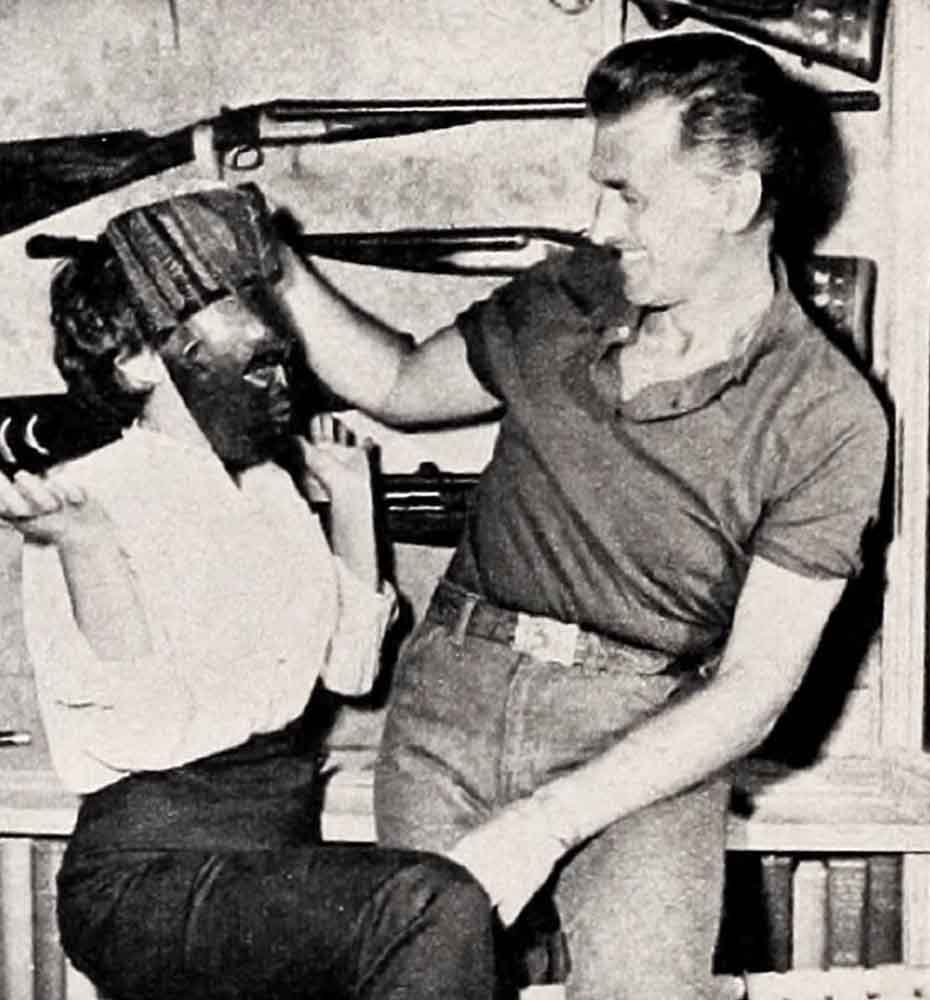
The mask—not Jean—is part of his African collection
He doesn’t care for chocolate malts or jazz. As a youngster, he loved to play cowboys and Indians; he still enjoys a good Western movie. Ernest Hemingway, Irwin Shaw and James “From Here to Eternity” Jones are the American writers he admires most; he has read some of Hemingway’s books six times. He likes coloratura sopranos, bullfights and lively prizefights. Modern wrestling bores him; so do most superstitions. He’s a rabid baseball fan; won’t miss a World Series if he can help it. Opera’s okay by him—unless it’s by Wagner. He hates surrealism m any form; among painters, he prefers the early Picasso and the French Impressionists. He’s mad for kippers—“so much so that they smell up the whole house.”
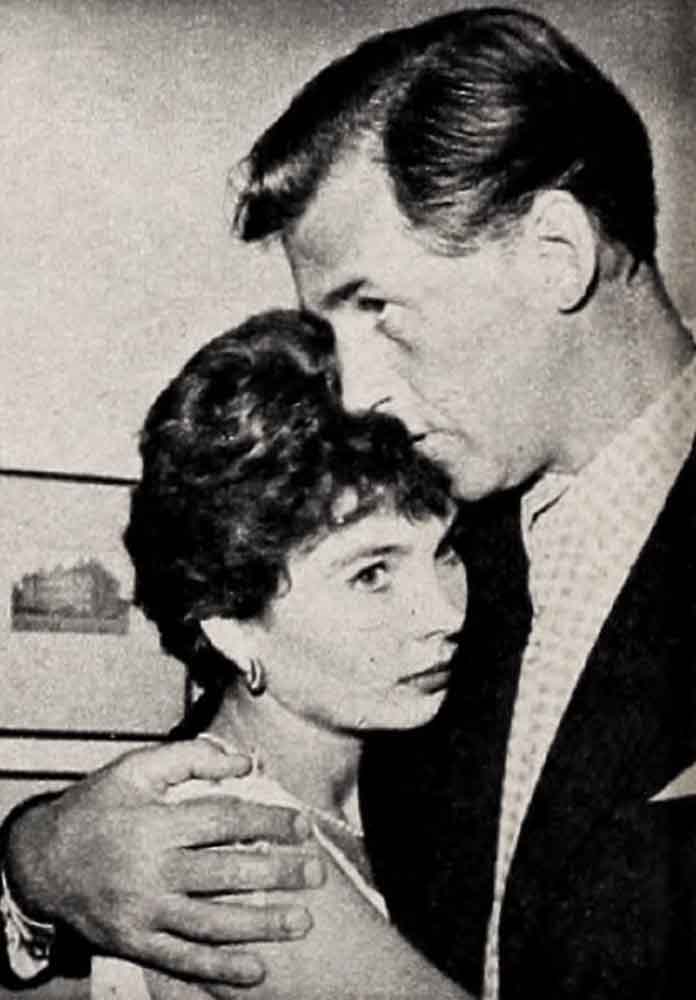
He has called Jean “Baby” ever since he first met her; she calls him Jimmy, as his close friends also do, because his real name’s James Stewart; her honeymoon pet name for him was “Chubby-Chops”; his sister calls him “Jimbo.” Everywhere he’s gone in the United States, he’s been most deeply impressed by the hail-fellow-well-met relationship between people in all walks of life—“the warm, easy informality. No inferiority complex, no matter how lowly the station. I like it tremendously.”
He sleeps in the raw. He’ll eat onions only if they’re cooked. He drinks a lot of milk, but doesn’t like beer. He prefers country to city life. His childhood idol was the silent-screen star Wallace Reid. He doesn’t like barbecue sauces or prepared seasonings: “It’s a crime to tamper with the flavor of a good steak.” He orders his steaks medium-rare. He has to watch his diet.
He’s outspoken, generous to a fault and well-equipped with the gift of gab. When a group of new portraits was recently submitted for his approval, he studied all the lavish retouching that, according to studio custom, had been done on the Granger face. Then he exploded: “What are you trying to do? Make me look like a twenty-one-year-old juvenile? It took me forty years of living to look like this! And I don’t want to hide a single year!”
THE END
It is a quote. PHOTOPLAY MAGAZINE FEBRUARY 1954


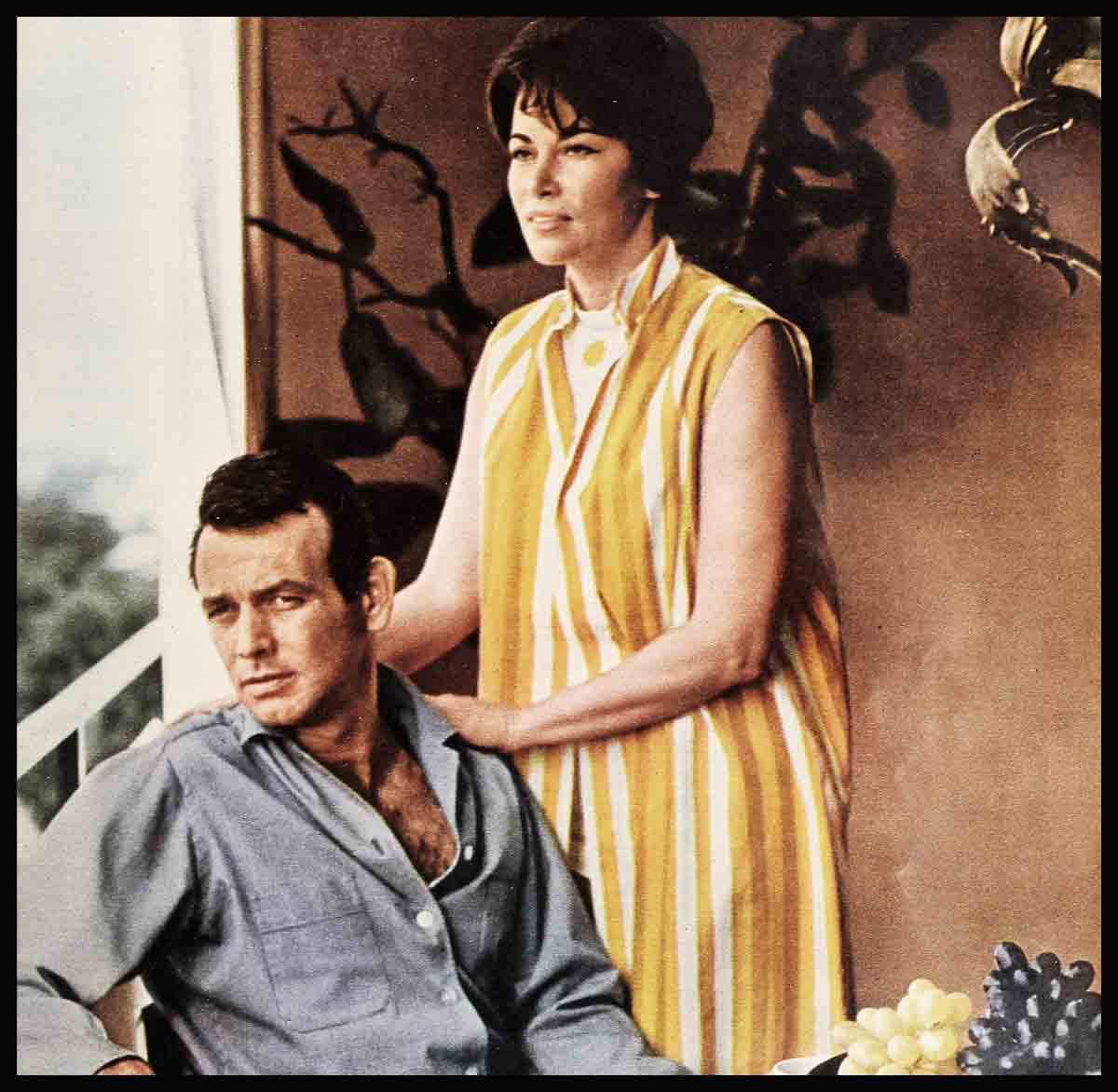

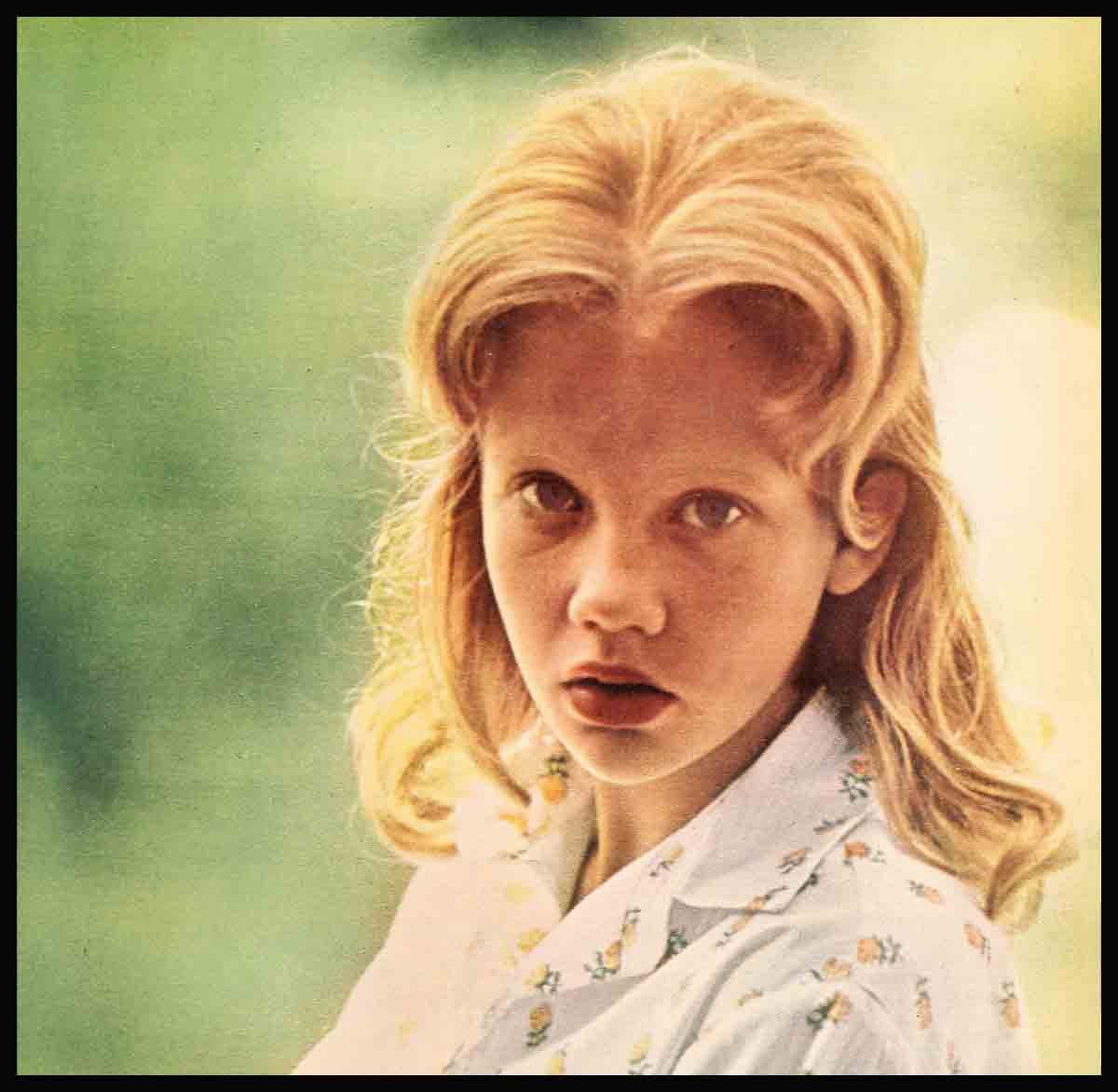
No Comments